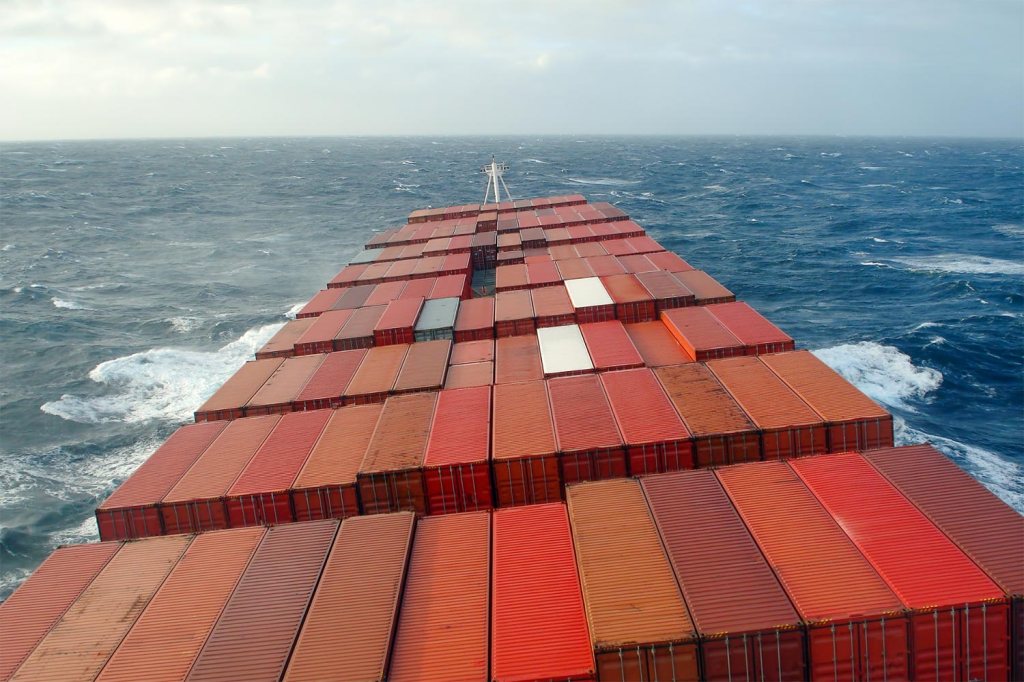If your business deals with shipping goods via ocean, you need comprehensive marine cargo insurance coverage for loss or damage. Your insurance plan will help to provide a safety net in unforeseen circumstances such as catastrophic weather events and various accidents.
You should also be aware of different types of losses in cargo insurance. Many have heard about total and partial marine losses, but these two broad terms divide into narrower categories that could influence your insurance coverage.
Different Losses in Marine Cargo Insurance
Types of losses in cargo insurance fall under two major classifications: total losses and partial losses. Total losses include actual total losses and constructive total losses, whereas a partial loss can be a particular average loss or general average loss.
Actual Total Loss
Actual total loss may occur under the following conditions:
- Complete destruction of the insured goods: such as when a cargo ship sinks or suffers total wreckage by fire or explosion
- Major extensive damage to the insured goods that causes the cargo to lose all or nearly all of its value
- Irretrievable removal of the goods from the insured party: such as a ship that goes missing without a trace
In actual total loss cases, if the insured party receives compensation, the insurer becomes the legal owner of the insured goods. If the damaged goods generate any profit, that amount will belong to the insurer.
Constructive Total Loss
Constructive total loss may occur when the crew abandons the cargo vessel and all the goods it contains for justifiable reasons. For example, the ship may sustain such damage that shouldering the cost of repairs would not be practicable.
Similarly, if bringing the shipped goods to coast would cost more than the cargo’s value, abandoning the cargo might be the only viable solution.
In such scenarios, the insured party must give the ocean cargo insurer a notice of abandonment and claim total loss damages. As in actual total loss, once the insurer issues damages to the insured, the insurance company becomes the legal owner of the goods.
Particular Average Loss
Particular average loss is a type of partial loss that occurs when the insured goods suffer damage and lose some of their value. The loss of value must occur due to a marine peril that the ocean cargo insurance covers—such as the case of an extreme weather event. Voluntary actions that lead to the damage cannot count as a particular average loss.
General Average Loss
A general average loss may happen when the cargo vessel’s crew takes voluntary actions to avoid danger, and these actions lead to the insured cargo’s expenditure or sacrifice. One possible situation is a ship being in danger of sinking due to overload. If this happens, the ship’s crew may have to decide to throw out some of the cargo to save the vessel, its crew, and any remaining cargo.
For such a loss to count as general average loss, several conditions must occur:
- An extraordinary situation, such as a severe storm
- Real peril under any reasonable professional judgment
- Voluntary, deliberate, and purposeful actions that lead to the loss of cargo
- A prudent extent of sacrifice
- Purposeful actions meant to save the ship and crew
- At least partial success of the deliberate sacrifice
General average is a relatively complicated concept used in the maritime shipping industry since ancient times. It states that in a situation of general average loss, all cargo owners bear losses proportionately. The settlement process for these types of losses in cargo insurance is often lengthy and complex, and requires a skilled adjuster.
For example, let’s say the vessel’s crew jettisoned some of the cargo to prevent capsizing, and the worth of the sacrificed cargo was $10 million. In this case, every cargo owner will generally contribute a proportionate part to make up for the loss, even if their portion of the cargo sustained no damage. Businesses that have proper coverage can file a claim with their marine insurance provider to cover their portion.
The Benefits of Comprehensive Marine Cargo Insurance Coverage
Some business owners who deal with marine shipping skimp on a shipper’s interest policy because they believe that they have sufficient protection thanks to COGSA (Carriage of Goods by Sea Act), carrier’s liability, or other maritime regulations. However, nothing could be farther from the truth. To protect your business from financial disaster, you need a reliable and targeted ocean cargo insurance policy.
Shipper’s interest cargo insurance allows you to:
- Reduce the odds of a severe financial loss
- Fully control the claims process
- Process a cargo claim much faster – sometimes within a few days versus long months
- Settle a claim successfully on a no-fault basis, without proving carrier negligence
- Receive full reimbursement based on your shipment’s value
- Expedite your cargo’s release in cases of general average loss
Finally, many businesses that deal with shippers require the shipper to carry ocean cargo insurance for liability protection. Failure to supply this type of insurance may constitute a breach of contract with your business partner and lead to a host of legal issues.
Marine Cargo Insurance Types
Shippers can opt for modular marine insurance coverage suited to their business needs and the extent of their operations. Ocean cargo insurance policies encompass several types, including:
- All-risk insurance. This is the broadest type of cargo insurance policy that covers the widest available range of terms.
- Named-risk policies. With this type of policy, the cargo owner enjoys coverage for a specific range of explicitly stated maritime perils, such as extreme weather events, fires, or explosions.
- Block cargo policy. This type of cargo insurance extends coverage from ocean-only to other types of transport—for example, when your cargo requires inland shipping by train after arriving at the port.
- Armed conflict policies. Many insurance plans don’t cover damage to cargo that results from war or civil unrest. Business owners who operate in high-conflict areas may wish to consider purchasing a targeted war cargo policy or make sure their all-risk policy covers armed conflict.
- General average insurance. This type of coverage protects cargo owners from liability in situations when the vessel owner declares general average. Since general average claims often reach millions of dollars, a general average policy can save your business in extreme circumstances.
What Does Ocean Cargo Insurance Cover?
The specific coverage depends on the exact type of ocean cargo insurance policy. Different policies may have varying conditions, so be sure you study all terms and discuss them with your insurance provider before you purchase a policy.
However, typically shipper’s interest insurance covers cargo in the following situations:
- Unfavorable weather events like storms, hurricanes, and typhoons
- Fires and explosions on board a vessel
- Damage during loading or unloading
- Collisions at sea
- Employee theft
- Piracy
Meanwhile, even all-risk policies usually exclude these types of losses in cargo insurance:
- Normal wear and tear
- Ordinary loss of cargo volume or weight (such as due to natural evaporation)
- Damage related to inappropriate packaging
- Deliberate damage by the insured party
- Contamination, except for contamination resulting directly from a type of peril specified in the policy—for example, a container of chemical substance leaking due to a severe storm.
How Much Can You Expect to Pay for Marine Cargo Insurance?
Similar to the coverage terms, the price of ocean cargo premiums may vary depending on your specific policy and other factors, such as:
- The cargo type and value
- Maximum liability limit per single shipment
- Your carrier’s safety record and experience
- Your history of prior cargo losses
- Specific risks related to your cargo route and destination
Your projected ocean cargo insurance costs also depend on how often you ship goods. If your business revolves around constant shipping, an open cargo policy would be appropriate. If you only deal with a few shipments every year, it may be wiser to go for single shipment insurance that can protect your cargo and help you accelerate settlements.
How to Choose an Ocean Cargo Insurance Provider
An unexpected ocean cargo loss can halt business operations and result in significant financial damage. When an emergency occurs, you count on your insurance policy to protect your investments. For your peace of mind, you need a trusted, reliable, and experienced insurance company.
JGS Insurance is a leading ocean cargo insurance company thanks to a proactive approach that ensures comprehensive coverage in any scenario. Our professional team will:
- Talk to you about your business goals and the coverage you need for different types of losses in cargo insurance
- Help you create an effective, custom-fit risk management plan
- Keep tracking and monitoring your insurance plan to make sure it stays relevant
JGS Insurance: Your Trusted Marine Cargo Insurance Partners Throughout Your Global Supply Chain
Do you need reliable commercial marine insurance for your business? Whether you are an importer, exporter, manufacturer, or freight forwarder, JGS Insurance is here to help you find the best ocean cargo insurance plan throughout your global supply chain.
With over a hundred years of experience supplying insurance solutions, our team at JGS Insurance will provide comprehensive ocean cargo coverage for your company.

